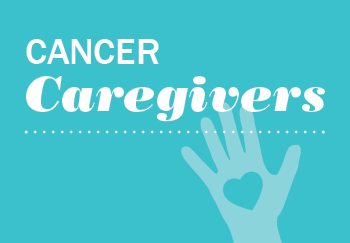 As a caregiver to someone who has cancer, you’re undoubtedly focused on coping with all the details of medical treatment and then moving on to the next chapter of your life together. You don’t want to think about a future in which your loved one doesn’t survive. But if the worst does happen, your family should know some basic financial facts about medical debt after death.
As a caregiver to someone who has cancer, you’re undoubtedly focused on coping with all the details of medical treatment and then moving on to the next chapter of your life together. You don’t want to think about a future in which your loved one doesn’t survive. But if the worst does happen, your family should know some basic financial facts about medical debt after death.
You will need time and support to grieve even as the organizations that provided care will continue with their regular activities. This will most likely include sending bills for your loved one’s end-of-life medical care. Here are some points to consider.
Who Is Liable for Medical Debt After Death?
Usually, the estate of the deceased person is responsible for paying those debts, not the heirs, according to Nolo, a well-known legal publishing company. The estate consists of the deceased person’s property, and the estate’s executor is responsible for paying off debts out of the estate. The executor will use any available cash to pay creditors. If the estate doesn’t have enough cash, the executor will sell the estate’s property to use the proceeds to pay those bills, Nolo reports.
There are some exceptions. For example, any person who cosigned the deceased person’s accounts could be responsible for paying those joint debts. Another exception would be for residents of the community property states: Arizona, California, Idaho, Louisiana, Nevada, New Mexico, Texas, Washington and Wisconsin. In these states, spouses are responsible for paying each other’s debts if one dies first.
How Can You Handle This Process?
It’ll probably take many months to resolve medical debt because creditors are allowed a certain amount of time to request payment from a person’s estate. You should expect to continue to receive medical bills and statements and insurance-related paperwork if your family member had health insurance. Know your rights, however: creditors can ask to be paid but that doesn’t mean you must pay debts immediately or out of your own pocket.
Find Financial Support
No one wants to think about paying medical bills after a loved one’s death, but there are ways to make the process less painful. UVA Cancer Center has resources that can help.
As you learned during your caregiving time, managing major medical expenses is always complicated. Now you have the added challenge of grieving, too. Debt.org, a leading nonprofit, advises you to check bills and statements for accuracy and keep detailed records of all billing-related correspondence. Dedicate some time in your schedule to sort through the paperwork, and designate one place in your home office or bedroom to keep it all. Try to have it separate from your own personal paperwork.
Tackle the bills gradually, doing a little each day so you can stop before feeling exhausted or overwhelmed. If at all possible, communicate with creditors before they begin any debt collection activities. Most will be willing to work with you, especially once they learn the circumstances.
Who Can Advise You?
State laws generally determine who is responsible for paying a deceased person’s debts. The laws are complex and various exceptions can apply. You should consult with an estate lawyer experienced in the laws of your loved one’s state of residence as soon as possible. Additionally, major medical centers typically have professionals on staff available to help navigate through difficult financial circumstances. At UVA Cancer Center, there are financial counselors who can answer questions and direct you to possible aid resources.
Grieving will never be easy, and this part of it doesn’t help matters. If medical bills, or grief in general, start to overwhelm you, seek out help. There are resources available.
